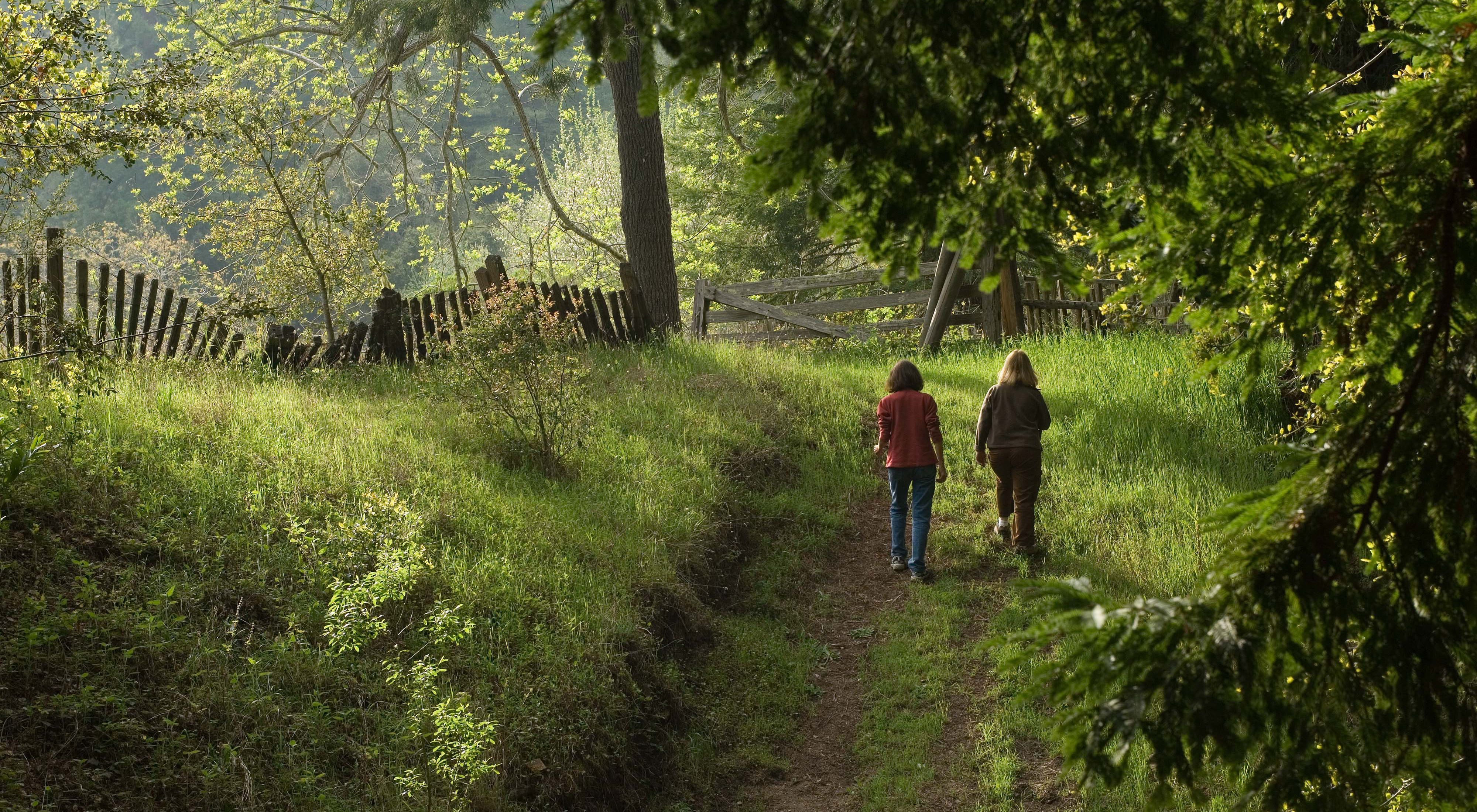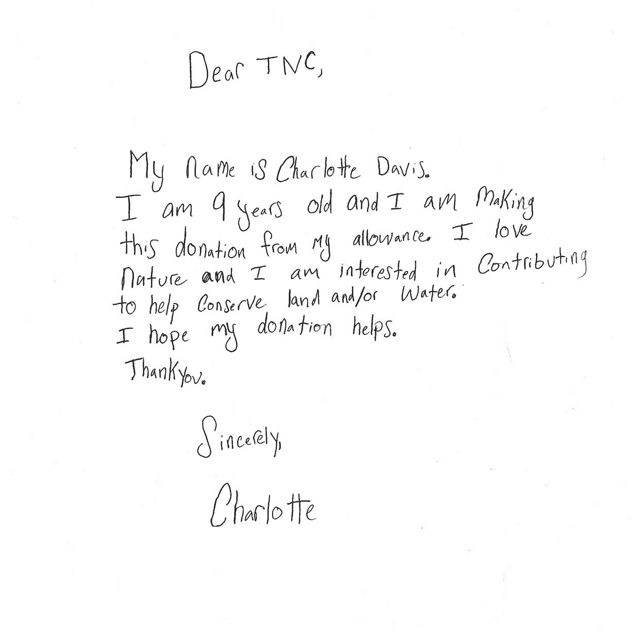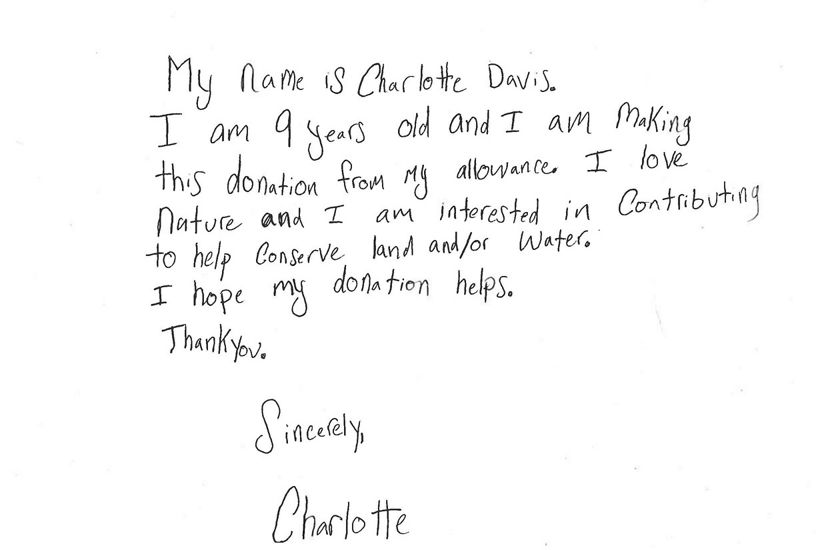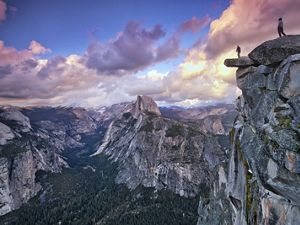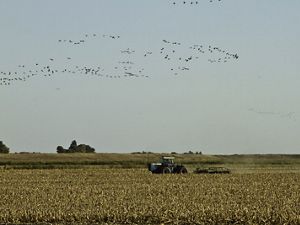Bain & Company’s Sam Isrealit on the Power of Partnership


Some of the most fruitful partnerships are formed when values and vision align, and that's just what happened when TNC joined forces with the international consultancy firm Bain & Company. Over the past several years, experts from Bain have provided meaningful pro bono services to TNC, working with our science and conservation teams to tackle tough environmental problems in new ways.
“We know organizations like TNC are on the front lines trying to address many of the challenges we are facing in the world,” said Sam Israelit, a Bain partner who leads the relationship with TNC and the organization’s chief sustainability officer. “We can take their deep expertise on the issues, combine it with our ability to understand the value chain economics of the situation, and identify market-based solutions to these conservation problems.”
Together, TNC and Bain have worked on a variety of conservation topics including developing innovative forest management solutions to reduce wildfire risk in California and launching Pacific Island Tuna, a sustainable canned tuna company created in partnership with the Republic of the Marshall Islands. The tuna is now being sold under Walmart’s Great Value brand, and the profits will be returned to the people of the Marshall Islands, with 40% dedicated to conservation.
For Sam and his team, one of the most memorable aspects of these collaborations is the chance to experience the very thing they’ve worked so hard to protect: nature. He fondly recalled the time Dan Porter, TNC’s forest strategy lead in California, invited Bain staff to visit a project site in Lake Tahoe after many months of working together. At the end of a long day, Dan took the group on an impromptu tour of the giant sequoias at Placer County Big Trees Grove—a sight that underscored the importance of protecting forest ecosystems. “It was really awe inspiring,” said Sam. “It takes your breath away.”
Doing Wonders for Wildlife: A Gift in Memory of TNC Donors Joan and Monty Griffin

When Joan Lewis and Monty Griffin joined the UCLA hiking club as college students in the 1950s, they were looking for opportunities to explore the wildlands of California. As they got to know each other on backpacking trips, they found an entirely different kind of adventure: a partnership that would last nearly 60 years.
From their earliest days as a young married couple, the Griffins made nature a focal point of their lives and their activism. “They loved the beauty of being outdoors, the solitude, the wildlife and just the preciousness of our earth and all it does for us,” said Jennifer Griffin, the second of Joan and Monty’s three daughters. “They wanted to save it for other people to someday enjoy.”
Joan, a homemaker, and Monty, an engineer for Cubic Corporation, devoted their time to preserving nature in their local San Diego community. They volunteered with organizations such as the California Native Plant Society; California Orchid Society; and Citizens Coordinate for Century 3 (C-3), a community planning and advocacy group; and they supported TNC for many decades.
“My parents believed in exercising your opportunity as a citizen in this democracy to be engaged. Especially in your community—that way, you have a voice in what’s going on around you,” said Jennifer.
After Monty passed away in 2010, Joan continued to champion the causes they believed in until her death in 2020. The following year, Jennifer paid tribute to her parents by donating nearly $2 million to TNC in their memory. This generous gift was dedicated to advancing land connectivity to benefit wildlife in San Diego County. It was a meaningful way to honor Joan and Monty’s lifelong commitment to leaving the world better than they found it—and a contribution that would no doubt make those two kids from the UCLA hiking club proud.
The Scott and Kendra Chan Memorial Fund: Honoring a Father and Daughter’s Legacy



When Vicki Moore recounts stories of her late husband, Scott Chan, and their daughter, Kendra, it is with equal parts love and passion for their shared commitment to protecting the natural world—especially the marine life Scott and Kendra enjoyed together on diving trips. “We all had this love for and understanding of the importance of our oceans,” said Vicki. “That was the last place they were before they passed. They were diving in the kelp forests off Santa Cruz Island.”
In September 2019, Scott, a beloved science teacher and engineer, and Kendra, a wildlife biologist with the US Fish and Wildlife Service, were on a dive trip aboard the MV Conception when the boat caught fire and capsized. Tragically, they were among 34 passengers and crew who lost their lives that night.
“After their passing, it was very clear that I was going to do something important to honor them,” said Vicki. In 2020, she partnered with TNC to establish the Scott and Kendra Chan Memorial Fund for Marine Conservation, which helps protect ocean ecosystems and biodiversity. The memorial fund is one of the ways Vicki and her son, Kevin, ensure that Scott and Kendra’s environmental legacy lives on—and their community has rallied to support them through generous contributions to the fund. “It just warms my heart,” said Vicki.
As she continues to champion the causes that were important to Scott and Kendra, Vicki remains devoted to her decades-long career as an environmental educator and advocate. She sits on the board of Living Classroom, the nonprofit she founded nearly 15 years ago to connect students with the natural world through hands-on lessons in native and edible gardens on school campuses, and she serves as a Santa Clara County planning commissioner.
“I am quite hopeful of the current generation coming up now,” she said. “They want to do something that has meaning to them and helps the world. I’ve been wired that way my whole life, and when I see young people working in that same vein and caring like I have cared, it gives me great hope.”
Stanton Hunter
"If the ecosystem doesn’t flourish, neither will we.”

When Stanton Hunter first visited the Tehachapi Mountains as a teenager in the 1970s, he never imagined he’d one day help to protect them.
A lifelong train aficionado, Stanton joined the La Mesa Model Railroad Club at the age of 16 and traveled with the group from San Diego County to the famous Tehachapi Loop, near Bakersfield. The helix-shaped loop was an engineering wonder of the 1870s that allowed trains to traverse the steep Tehachapi Pass. As a club member, Stanton helped create a scale model of the loop that can still be seen today in San Diego’s Balboa Park.
Stanton turned his love of trains into a long career with Caltrans, working with rail passenger equipment in the divisions of Rail and Mass Transportation. On his work trips along Amtrak’s San Joaquin route, he took every opportunity to further explore the Tehachapi Mountains.
“Over time, I came to realize that not only are the Tehachapis interesting from a railroad perspective, they’re beautiful,” he said. “The grasslands, the blue oaks, the mountains. It’s a very diverse place. I’ve been going back there for 40 some odd years.”
Stanton and his wife, Racine Barton, had already decided to donate to TNC, but when they discovered that plans were underway to establish a 77,000-acre preserve in the Tehachapi Mountains, they knew they wanted to help protect this one-of-a-kind landscape. In 2020, they made a significant donation to support conservation at TNC’s Frank and Joan Randall Preserve.
“When Racine and I asked ourselves what difference we could make with the resources we have, the first thing to come to mind was habitat preservation. There is no way we are going to be able to maintain species diversity without the ability to set aside large areas of habitat where species can flourish,” said Stanton. “We live in this tremendous, interconnected ecosystem. Plants, animals and climate—they are all connected, and they need to remain connected to flourish. If the ecosystem doesn’t flourish, neither will we.”
Remembering Dr. Art Riggs
Pioneering Scientist and TNC Trustee Emeritus

TNC staff and trustees mourn the loss of our friend Art Riggs, who passed away on March 23 after a battle with cancer.
A renowned geneticist and researcher at City of Hope, Art helped shape modern medical science through the development of technologies that transformed diabetes and cancer care. His discoveries led to the first human synthetic insulin for the treatment of diabetes and laid the groundwork for monoclonal antibody therapies, which are now used to treat cancer and many other diseases. Through his work, Art catalyzed the biotechnology industry and improved the lives of hundreds of millions of people globally. As a testament to his far-reaching impact, he was elected to the National Academy of Sciences in 2006.
No one understood the transformational power of science better than Art. For more than 40 years, TNC was privileged to have his partnership in our efforts to use science to protect nature. Art and his wife, Jane, supported conservation projects in California, Colorado and around the world. In California, they established a first-of-its-kind endowment at TNC to fund science leadership through the Victor E. Shelford Director of Conservation Science position, which was named after a luminary of ecology and one of our organization’s founding scientists. By endowing a position that TNC will always need, Art and Jane hoped to inspire others to invest in the advancement of conservation science in similar ways.
“I am grateful for the Riggs’ deep commitment to conservation and their trust in our organization,” said Dr. Scott Morrison, TNC’s current Victor E. Shelford Director of Conservation Science. “Their impact on us will be lasting.”
During Art’s tenure on TNC’s California Board of Trustees and throughout his years as an emeritus trustee, he provided invaluable advice and leadership to help scale our work. “He was a passionate conservationist who witnessed the dramatic transformation of California’s landscapes and was inspired to do something about it,” said California Executive Director Mike Sweeney. “He pushed us to be impatient, aggressive and take risks in tackling big problems, from renewable energy to water sustainability.”
In addition to his extraordinary achievements, Art’s thoughtfulness, curiosity and commitment to making the world a better place will be remembered by all who had the good fortune to know him. TNC staff are grateful for Art and Jane’s dedication to advancing our mission, and we are deeply honored to be a part of their enduring conservation legacy.
Fawn Bergen
Intel's Corporate Sustainability Manager

Serene wetlands and emerald-green riverbanks don’t automatically conjure images of a global technology company, but these are exactly the kinds of places that Intel is helping to protect. A longtime supporter of conservation, Intel has deepened its investments in TNC and other organizations over the last four years to advance projects on the ground.
“We want to be a leader in sustainability,” said Fawn Bergen, the company’s corporate sustainability manager. An example of that leadership is Intel’s commitment to net-positive water use by 2030, meaning the company will conserve water at its facilities and restore more than 100% of the water it does use by funding conservation initiatives in the communities where it operates.
As part of this effort, Intel is supporting local projects at TNC that demonstrate innovative conservation strategies which have the potential to be scaled around the world. These include the BirdReturns program in California, which creates pop-up wetlands for migratory birds during the peak of their migration, and a crop-switching initiative in Arizona’s Verde River Valley. The latter project, in which farmers were incentivized to plant barley instead of thirstier crops, is saving water and creating new market opportunities for farmers interested in meeting the demand from the growing craft beer industry.
“Our water program stands out to a lot of people as one of the most interesting leadership positions for Intel in the sustainability space,” said Fawn. “We wouldn’t be able to do that if we didn’t work with organizations like TNC.”
For Fawn, nothing can replace the feeling of seeing birds gathered at a wetland or lush habitat thriving along a riverbank and knowing that she and her team helped make it happen. “Sitting at a desk is so much different from actually getting out there to see those changes. It is an experience I won’t forget.”
Frank and Joan Randall
For Frank and Joan Randall, protecting open space is a calling.

Frank grew up in South Pasadena and spent his childhood exploring Southern California’s natural lands. He went on to join the US Navy, exploring the world by sea and ultimately retiring from the naval reserve as a Lieutenant Commander. Joan grew up in Los Angeles. She studied philosophy at The University of Southern California, and consistently volunteered for environmental organizations. Frank and Joan connected over a love of adventure and, after they were married, they went on to travel extensively, finding natural wonders from Antarctica to Tahiti. But as time went on, what they saw was troubling. “In my lifetime I have witnessed massive changes in the state of nature,” Frank said, “and time is not on our side.”
Throughout his career in commercial real estate development, Frank recognized the importance of preserving open space. He specialized in redeveloping malls and other retail centers in already urbanized areas in and around Los Angeles. “The preservation of open space has long been a passion of mine,” he explained. “Buildings can be removed, but land is never the same once it’s built on. Once open space is lost, it’s really lost for good.”
With this understanding, Frank and Joan dedicated themselves to conserving natural lands and, in 2021, they championed the protection of what is now TNC’s largest California preserve. The Frank and Joan Randall Preserve at the Tehachapi Mountains covers over 70,000 acres (the size of five Manhattans) at the southern end of the Sierra Nevada.
The area is a biodiversity hotspot and an essential habitat linkage for native species like bobcat, bear and mountain lion, that will need to travel farther to find resources as our climate changes. The Randalls made this protection possible with a transformative gift to TNC of $50 million, ensuring that this land will be protected forever.
“Nature is resilient,” Frank said, “and by protecting critical areas like this one, we can give it the chance to adapt to change. But we’re also giving ourselves a chance at a better future.”
Lyle Bagatti
“There’s always something to do here”
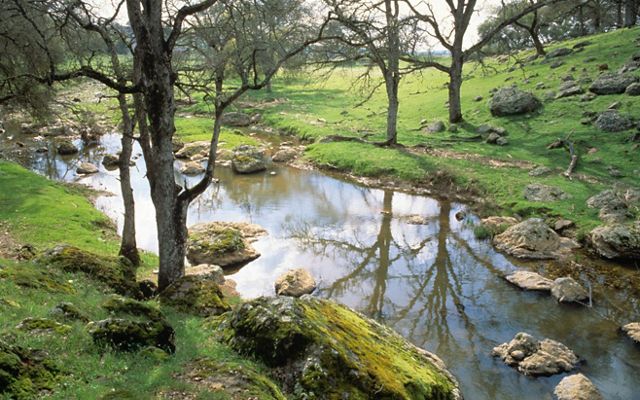

“There’s always something to do here,” said TNC volunteer Lyle Bagatti as he sat on a tractor at the Cosumnes River Preserve. Located south of Sacramento, the preserve encompasses 50,000 acres protected by TNC and a coalition of partners. “I try to do things that the staff don’t have time to do.”
For more than two decades, Lyle has worked alongside Alex Cabrera, the preserve’s stewardship coordinator, to tackle projects ranging from invasive plant removal to the creation of habitat for shorebirds impacted by drought.
“Volunteers like Lyle bring professional skills that are very valuable, and they are also willing to learn new skills to support our conservation goals,” said Alex. “He has made a big impact at the preserve.”
A retired Sacramento deputy sheriff, Lyle has led countless service initiatives at the Cosumnes River Preserve and has seen the benefits of conservation firsthand. Lately, he has been ensuring that preserve roads are up to state standards, so they can be used as emergency access routes during fire season.
Whether donating time or money, or changing our daily habits, Lyle believes we can all play a role in protecting nature. “It could be a simple thing like planting milkweed in your backyard to attract monarch butterflies, or planting plants that help our pollinators,” he said. “Any little thing you can do is an improvement.”
Lee Lockie
Birds of a Feather: The Bonds of Friendship are Driving Conservation in the Sierra

For Lee Lockie, supporting conservation means both investing in the future and delivering on a promise from the past.
Six years ago, Lee became the benefactor of the Johanson Foundation, a conservation fund created by her late friend and fellow birder, Dr. Paul Johanson. The two met on a birding trip in the 1990s, when Lee was working as an air quality scientist and Paul as an orthopedic surgeon. Their shared love of nature led them on many adventures, and before Paul passed away in 2013, he asked Lee to continue his conservation legacy through the foundation.
“He had confidence in me because I liked birds and understood the science behind what he was trying to do,” said Lee. “He was really sad that he couldn’t find the kind of project he was looking for during his lifetime. He told me what his mission was: to find riparian habitat and conservation properties to purchase and preserve.”
Shortly after Paul’s passing, Lee took a trip with TNC to the Sierra Nevada. “I thought, this is it! This is what he was looking for!” Through the Johanson Foundation, Lee helped TNC purchase a key conservation property in Sierra Valley and went on to invest $4 million to protect critical habitat across the region. She now serves on the governing council of the Northern Sierra Partnership—a coalition of five organizations, including TNC, that are working to conserve and restore the Northern Sierra—and supports conservation in other areas, including New Mexico.
Whether the project is big or small, Lee is gratified by a simple truth: Together, she and Paul have made a difference.
Rebecca Wenk
A Living Legacy at the Sierra Valley Preserve
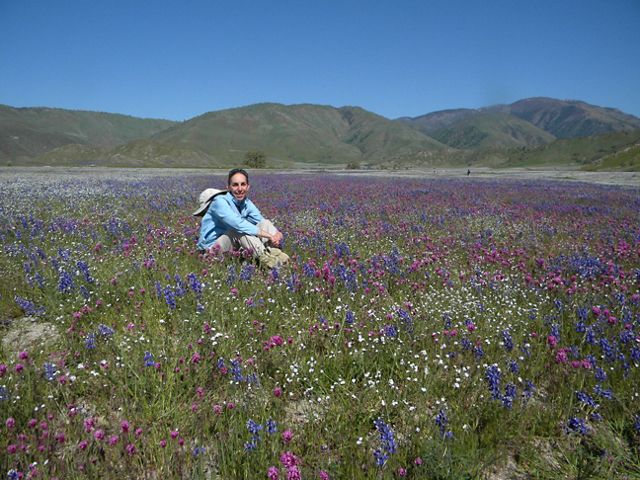
When the Wenk family lost their beloved daughter and sister, Rebecca, to cancer in 2011, they wanted to honor her memory by supporting something she loved her entire life: nature.
Working with The Nature Conservancy, Feather River Land Trust and the Northern Sierra Partnership, the family established the Rebecca Wenk Nature Trail at the Sierra Valley Preserve. “The trail meanders beautifully around different habitats in the valley, passing by plants we knew were Rebecca’s favorites, including the California peony,” said Julia, Rebecca’s mother.
A dedicated botanist who worked for UC Berkeley and the California Academy of Sciences, Rebecca was a third generation scientist and hiker. As children, she and her two sisters developed an early love of nature while exploring the mountains of Switzerland, where their father, Rudy, a UC Berkeley geology professor, had hiked extensively as a youth. “With our daughters, we spent many summers in the Alps when I was doing field work there,” he said. “Climbing mountains, stopping to look at wildflowers and animals, and enjoying beautiful views instilled in our daughters an appreciation of nature.”
Now, visitors to the preserve can forever enjoy the trail and memorial bench that pay tribute to Rebecca and her passion for California’s unique plants and flowers. The Wenks hope this special place will inspire others to preserve natural areas like Sierra Valley from development. “If you destroy the environment, all this beauty is gone,” said Rudy.
Jon Goulden
It all started in the river, a conservation journey
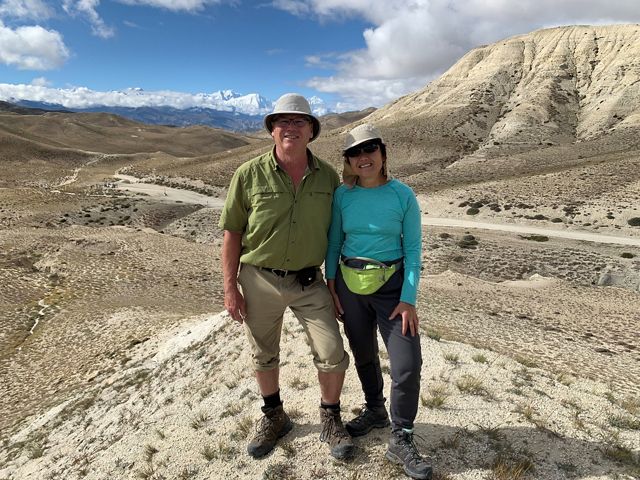
Jon Goulden found his way to conservation by way of a river and a pair of waders. In the early 1980s, the now-retired Hewlett-Packard executive took up fly fishing after he and his wife, Kwok Lau, moved to California. He wanted to help preserve the natural landscapes he explored on fishing trips, and soon became a TNC donor. Three decades later, Jon serves on TNC’s California Leadership Council, and he and Kwok support numerous conservation projects.
“One of the things we really like about TNC is the idea of trying out new things,” he said. In 2020, they donated $1 million to launch the Acquisition Catalyst Fund, a grant-seeded investment tool that funds critical conservation projects and recycles capital to increase impact. The fund appealed to them not only because it multiplies the impact of every contribution, but because the pace of investment enables donors to see immediate benefits for nature, such as the purchase of land and water rights.
“It is important for people to feel like they are participating,” said Jon. “So many things happen at such a large scale, hundreds of millions of dollars, and it can be hard to feel connected to those. Innovations like this let people feel closer to the project.”
Being involved is central to Jon and Kwok’s approach to philanthropy. “You can wait until you die to fund the organizations you like, or maybe you do something ahead of time,” he said. “You can get a lot out of it.”
Lila Michael
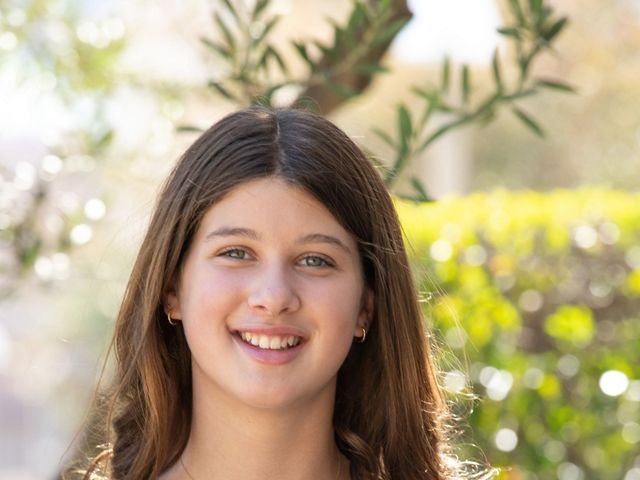
When Lila Michael thought about celebrating her bat mitzvah this year, she was sure about one thing: making a difference. She wanted to support a good cause, and nature was at the top of her list. At her ceremony, which was held virtually due to the COVID-19 pandemic, Lila asked her family and friends to donate to The Nature Conservancy in lieu of gifts. To date, the California Chapter has received $10,000 in contributions to honor Lila.
“It’s a good feeling to know that you’re helping,” she said. “It’s going to something that needs it more than me.”
Lila’s love of nature is rooted in the experiences she has had on family trips. From visiting waterfalls on Kauai to coming face-to-face with a whale while boating in Mexico, she is always up for exploring the natural world—especially the ocean. “Sea turtles are my favorite animal. I swam with them in Hawai‘i and I’ve also seen them hatching,” she said. “It’s stressful, you don’t want them to be eaten by the seagulls!”
Last year, Lila learned about climate change in school and was inspired by the activism of Greta Thunberg. Her bat mitzvah provided an opportunity to put her own passion for the environment to work. “You can’t just sit around. You can acknowledge it all you want, but nothing is going to change if you don’t take action.”
Charlene Kabcenell
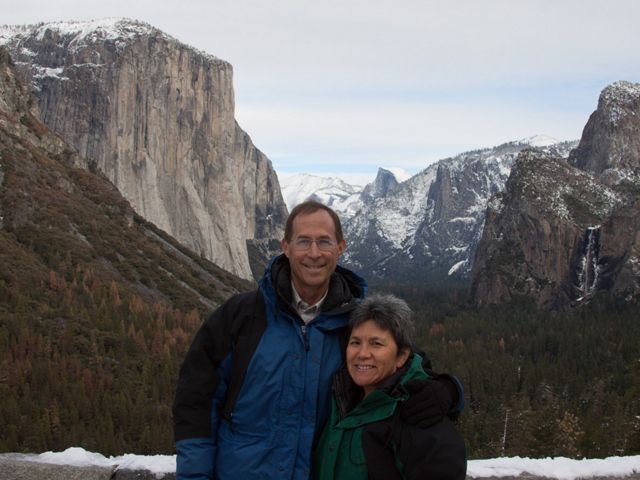
Conservation is often a long game. It requires that we invest in the future without the promise of a quick return. Trustee Charlene Kabcenell has made this kind of investment over nearly three decades as a TNC donor, and she’s seen impressive results much earlier than expected.
A case in point is the California Groundfish Project, a collaboration be- tween TNC and coastal fishing commu-nities that dates back to the early 2000s. Kabcenell, a retired vice president of software development at Oracle and the current president of the Massachusetts Institute of Technology Alumni Association, followed the project from its inception. “
The groundfish fishery had basically collapsed, and fishers were in a dire state,” she said. “TNC and partners came in and helped restore not just the fishery but also the communities that depend on the economic prosperity a robust fishery provides.”
Recognizing that fishing communities were critical to achieving healthy oceans, TNC purchased fishing permits and collaborated with fishermen to find new ways to protect habitat and improve fishing practices.
In 2019, during the final stretch of the Our World campaign, we transferred the last of our fishing rights to newly established community fisheries trusts, putting stewardship responsibilities in the hands of local conservation leaders.
Now, less than 15 years after TNC purchased fishing rights, fish popula-tions are rebounding decades ahead of schedule, and extensive habitat protec-tions are in place.
“It was a long and difficult process,” said Kabcenell, “but it showed the best of TNC: its science-based and collaborative approach, creativity, innovation and just plain perseverance and hard work.”
Kabcenell is inspired by these outcomes not only as a conservationist and businesswoman but also as an outdoors enthusiast.
“I am an avid scuba diver, and I’ve seen firsthand how much our oceans have deteriorated,” she said. “I don’t think most people realize this because oceans look fine from the surface. That is why I want to do all I can to advocate for the oceans and keep them from being overlooked.”
An Enduring Legacy: Remembering Kerry Landreth Reed
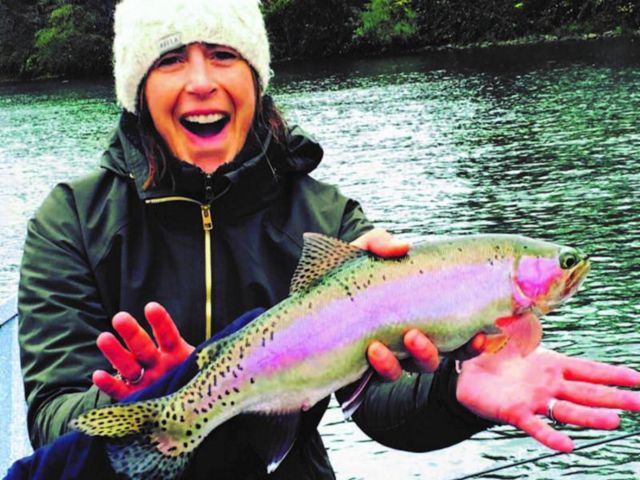
TNC is fortunate to have many dedicated donors who are passionate about protecting the natural world. Some give money. Others give time. Some make introductions. Others give advice. Kerry Landreth Reed gave all that and more: she gave her whole self.
A lifelong outdoors enthusiast, Kerry spent many happy hours hiking, skiing, and angling with her loved ones. TNC’s preserve at the McCloud River was a favorite destination, and it became a focal point of her family’s philanthropy with us. In 2012, after conquering her first battle with breast cancer, Kerry set out to make her mark on the issues she cared about, including conservation. She co-founded—and led—the California Leadership Council, a group of business and philanthropic leaders who serve as TNC ambassadors. Her efforts paid off; the California Leadership Council is now one of TNC’s most important outreach and engagement programs.
Kerry never let anything get in the way of living life to the fullest, even the return of her cancer. Despite the long hours she spent at the hospital, she remained deeply engaged with TNC. In 2017, during the final months of Kerry’s life, we renamed our preserve at the McCloud River in her honor. We are proud to be part of her incredible conservation legacy and to continue the work she believed in so deeply.
“I’ve always felt that California provided a model for the world,” she said. "Whether the issue is fighting climate change, keeping our rivers flowing or protecting wildlife habitat, we are leading the way.”
Charlotte Davis
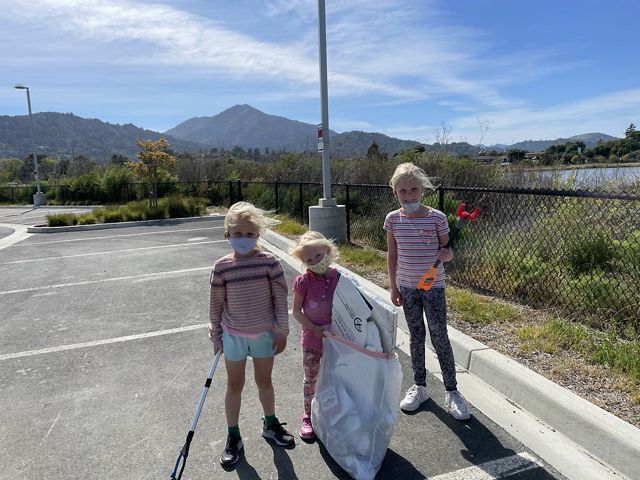
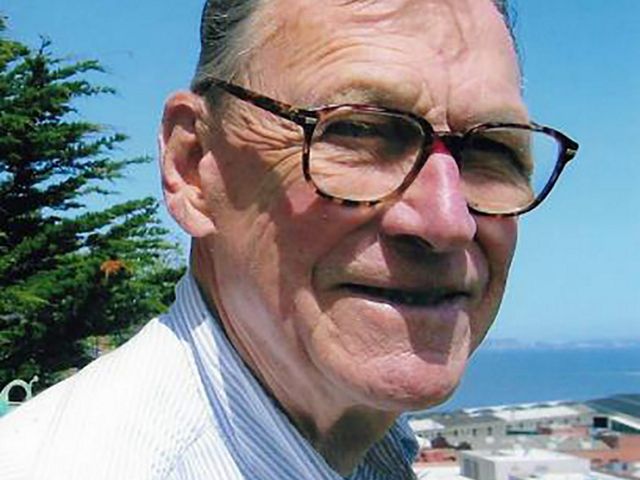
Remembering Jack Weeden
As TNC celebrates 60 years in California, we honor the life of our friend and former board member Jack Weeden, one of our earliest and most dedicated supporters.
Growing up in Northern California in the 1930s and ’40s, Jack and his three brothers enjoyed exploring the natural world. They frequented the lush forests owned by family friends Heath and Marjorie Angelo—3,100 acres in Mendocino County that would later become the Angelo Coast Range Reserve, TNC’s first reserve in the state. During World War II, they held summer jobs at Yosemite, and Jack later hiked the John Muir Trail with his brothers Alan and Don.
Jack served on TNC’s California Board of Trustees for 17 years and generously supported our projects, making his final donation with a $2.3 million bequest. He remained a champion of nature into his 90s, welcoming TNC staff to tour his beautiful San Francisco garden and chat about environmental issues—a special experience for anyone lucky enough to be invited.
After Jack’s passing in March, we named an ironwood grove in his memory on our Santa Cruz Island Preserve, a place that was dear to his heart. It is one of the many ways we will remember Jack and his extraordinary commitment to conservation.
Angelo Coast Range Reserve
In 1959, the Angelos were at a crossroads. They owned 3,100 acres of pristine, old-growth forest in Mendocino County, but a new law forced property owners to pay taxes on the value of their timber whether or not they chose to harvest it. That’s when they approached TNC.
Today, the Heath and Marjorie Angelo Coast Range Reserve spans 7,660 acres and is operated by UC Berkeley.
Sally Liu
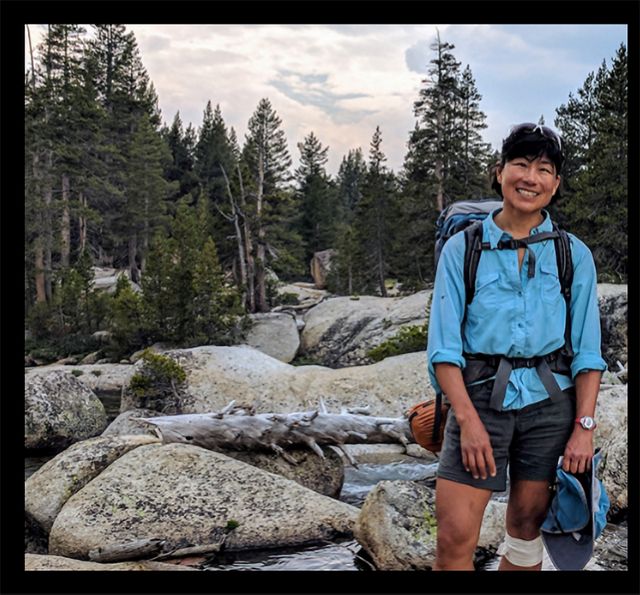
“I’ve always been involved in the environmental world,” said Sally Liu, a scientist with TNC’s California Water Program. Liu came to conservation after 18 years at Tetra Tech, an environmental consulting and engineering firm. “The mission of protecting biodiversity, open space and habitat is something that strikes you at your core: your heart.”
Liu is a longtime donor and co-chair of TNC’s California Leadership Council, as well as a key member of the California groundwater strategy. “
TNC was the force in gaining protection for nature in California’s first law regulating groundwater. It was super exciting to be part of the groundwater team from the beginning, shap-ing the strategy to ensure that the law’s imple-mentation will actually protect our river and wetland ecosystems that rely on groundwater.”
Liu leveraged her experience with groundwater modeling from her days as a consultant and represented TNC on the Technical Advisory Group for one of the first groundwater sustain-ability plans developed under the new law.“
This work encapsulates why TNC is a best-in-class environmental organization. Our strategy relies on science, like the first-ever mapping of groundwater-dependent ecosystems; partner-ships with public agencies and conservation and environmental justice groups; and innovative solutions that we’re testing on the ground, like the new groundwater market.”
As a donor, Liu has funded projects ranging from forest conservation in Indonesia to water funds in Latin America. “
I love the global reach of TNC,” she said. “As a volunteer, I’m excited to be able to work on specific projects; but as a donor, I love the breadth of what we do.”
Fortunately, Liu is ready to keep fighting for a better future. “
This year has felt so cataclysmic, as we endure the smoke and fires in California, read about the fires in the Arctic and Amazon and watch the series of hurricanes hit the Gulf Coast. We need hope. We need optimism. Over the past decade, I’ve worked with so many TNC California staff, and their smarts and heartfelt commitment give me the strength to keep up the fight for nature in California and beyond.”
Generosity in Action: Celebrating the CLC Challenge
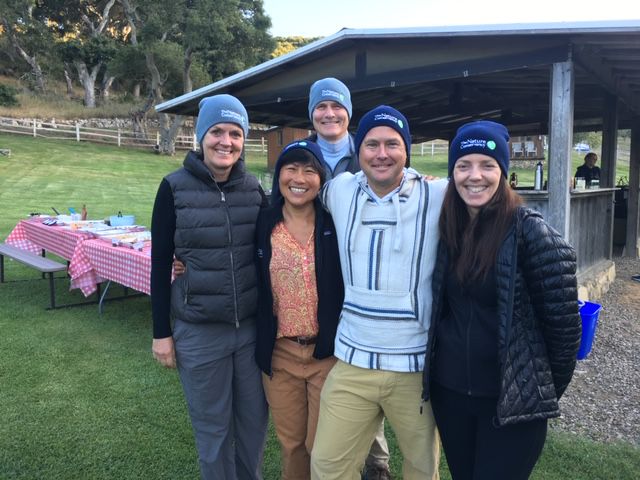
"I was struck by the question, ‘If not us, who?’” said Sally Liu, a scientist with TNC’s California Water Program and co-chair of the California Leadership Council (CLC), a group of volunteer leaders at TNC. “How can we ask others to do more, to give more, if we don’t lead the way?"
In early 2020, Sally and CLC co-chair Mike Green each pledged to give $1 million to TNC in the final months of the Our World Campaign. They challenged their fellow CLC members to help raise $5 million by June. The group not only met this challenge, they surpassed it. Together, they raised $7.4 million for nature, bringing the CLC’s contribution to more than $13 million over the seven-year campaign.
“The CLC knows how critical TNC's work is to the preservation and protection of the natural world,” said Mike. “Hopefully this reinforces how much we appreciate the passion and commitment of staff across the organization, and how strongly we believe in the work they do.”
The Sprague Family
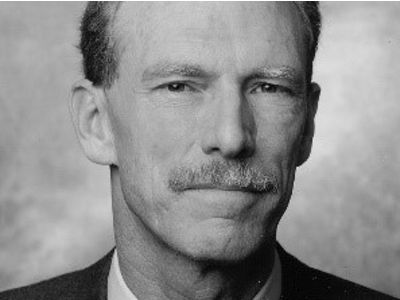
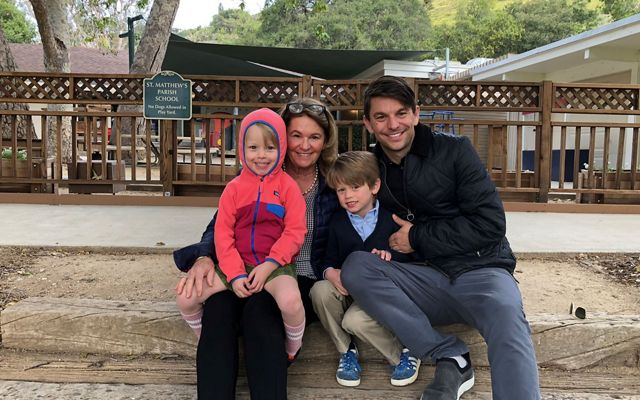
Giving back may not be the official motto of the Sprague family, but it’s certainly their way of life. That includes actively supporting one of their greatest sources of joy: nature.
“We grew up immersed in and appreciating the wonders of nature,” said Ben Sprague, CEO at Earl Warren Showgrounds and a member of TNC’s California Leadership Council (CLC). “Nature teaches unique lessons you don’t always get elsewhere: humility, flexibility and a reverence for the interdependence and fragility of complex systems. As a family, our support of education, the arts and conservation is intricately and passionately tied to nature.”
The Sprague family became involved with TNC’s California Chapter in 1999, when Ben’s father, the late Dr. Norman F. Sprague III, joined our Board of Trustees. A prominent orthopedic surgeon and clinical instructor at the University of California, Los Angeles, Norm was a conservationist through and through. He championed a number of complex initiatives during his 15 years of board service, and with his wife, Marianne, and their family foundation, he established a scholarship to provide promising MBA students with conservation leadership training at TNC. He was passionate about work related to land connectivity, particularly safe-passage corridors for animals, as well as the preservation of Santa Cruz Island and the Monterey Bay fisheries. When Norm passed away unexpectedly in 2014, TNC Executive Director Mike Sweeney dedicated a previously unnamed mountain peak to him on our Santa Cruz Island Preserve. Today, Norm’s Peak remains a special tribute to a man who did so much for the island.
In recent years, the Sprague family — which includes Marianne, Ben and his sisters, and Norm’s three sisters and their families — have carried on Norm’s legacy through their support of conservation. During the Our World cam-paign, they were close partners in TNC’s efforts to establish the Jack and Laura Dangermond Preserve.
“I’ve never been more excited about anything in my life in terms of a conservation project. It’s a once-in-a-generation opportunity,” said Ben.
The Dangermond Preserve has the potential to move conservation in a promising new direction and take it into uncharted territories — and that is exactly the kind of visionary, large-scale project that appeals to the Spragues.
“As a family, our hope is to be net-positive in the geographic areas we inhabit,” said Ben. “Whether we are helping underprivileged kids have access to nature and science, setting aside land to protect a last-of-its-kind species or creating scholarships, our goal is to make a constructive difference.”
Francie Mitchell
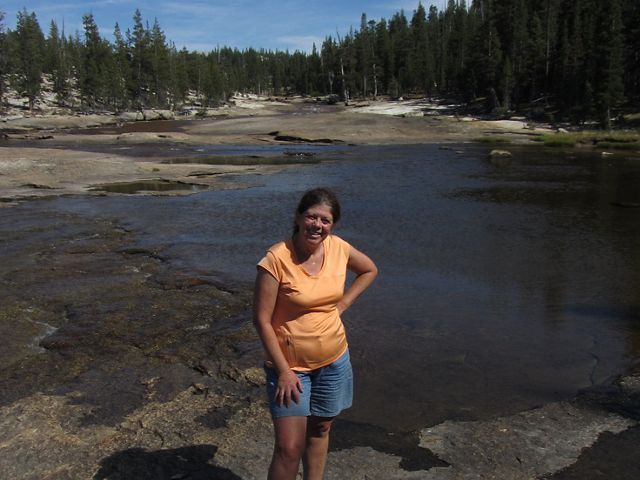
“The level of scientific knowledge at TNC impresses me,” says Francie Mitchell, a former chemist and international IT director at Clorox. “It exceeds my expectations.”
A TNC donor for more than three decades, Francie came onboard as a volunteer seven years ago, shortly after retiring. Since then, she has helped the California Chapter’s conservation and science teams with projects ranging from ocean protection to habitat connectivity. This includes supporting TNC’s Regional Conservation Investment Strategy Symposium, an annual gathering where public agencies and stakeholders share best practices to identify regional conservation priorities and guide development to avoid conflicts with nature.
“I was committed to TNC before, but through volunteering, I became even more committed. To actually see the work TNC does and the impact it makes just blew me away,” she says.
When Francie is not working alongside TNC colleagues, she enjoys biking and exploring the hiking trails near her home in Northern California. Knowing that she is helping to protect the natural world makes her adventures even sweeter. “I am a native Californian. The work that TNC is doing really helps preserve the California that I grew up in and that I love.”
Trustee Angela Nomellini Has Made a Splash in the World of Conservation
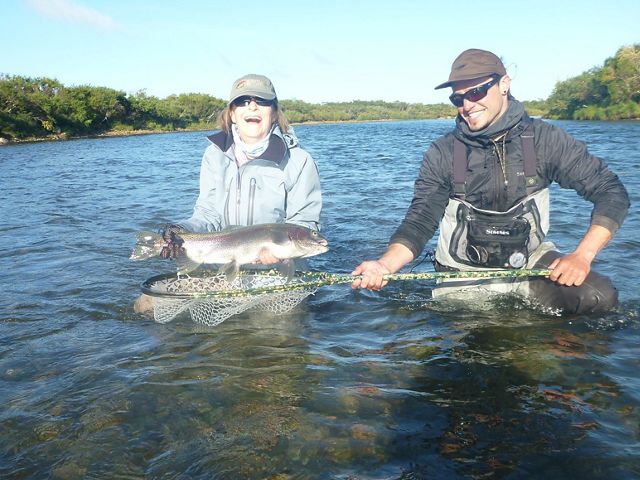
“How do I most like to connect with nature? I connect through my waders!” says Angela Nomellini, an enthusiastic fisher and member of TNC’s California Board of Trustees.
Angela and her husband, Ken Olivier, first discovered TNC after one of Ken’s fishing trips more than 20 years ago. Since then, they have generously invested in TNC’s conservation efforts around the world. They like to support conservation in “places where we live, where our lives touch down,” explains Angela. One of their greatest passions is the California Salmon and Steelhead Coalition, which works to recover salmon and trout populations across the state. The coalition is a partnership between TNC, California Trout, and Trout Unlimited, where Ken is a board member.
In addition to her role as a trustee, Angela is co-chair of the California Chapter’s Our World Campaign Committee and serves on both the global Our World Planned Giving Committee and the North America Advisory Cabinet. This June, her contributions were recognized at the Volunteer Leadership Summit, where she received TNC’s highest honor: the Oak Leaf Award for outstanding service.
“What keeps me coming back is the quality of the people I get to work with,” she says. “TNC is doing a lot of good work. Everybody working at TNC and the other donors I interact with are grade-A people.”
Make a Difference in California
Together, we can achieve transformative change on a scale that’s attainable—for California, and for the world.
